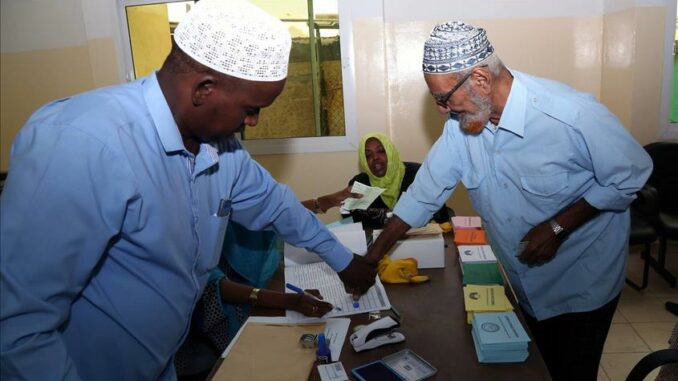
Djibouti, a small country in the Horn of Africa with a strategic position from a military and commercial point of view, is voting on Friday for parliamentary elections in which the powerful presidential party is sure to win a majority.
Djibouti’s 230,000 voters out of a total population of about one million are invited to go to the polls to choose the 65 members of the National Assembly, elected for five years in a single round of voting.
Only two parties are in the running, including President Ismaël Omar Guelleh’s Union for the Presidential Majority (UMP), which is present in all six constituencies of this sparsely populated and desert country. The Union for Democracy and Justice (UDJ) is running in only two constituencies, including Djibouti City, against the UMP, which has been in power since independence in 1977.
“This election is just a formality, nothing is going to change, and I am not going to vote because I don’t recognize myself in any of the projects they promise to put in place,” said Ali, a 32-year-old unemployed man who did not want to give his full name.
The main opposition parties, such as the Movement for Democratic Renewal (MRD) and the Republican Alliance for Development (ARD), boycotted the election, which they both called a “charade”.
“The elections (remain) unfree, non-transparent and undemocratic,” the MRD said in a statement in January, denouncing a “one-party system. Igad, a regional grouping of East African countries, has announced it will send an observation mission.
In the last legislative elections in 2018, the UMP won 58 of the 65 seats. Five went to the UDJ and two others to small parties. For the 2021 presidential election, Ismaël Omar Guelleh, now 75, was re-elected by more than 97% against a businessman who had just entered politics and was little known to the general public.
The country dreams of becoming the “Dubai of Africa” and intends to further develop its important logistics infrastructure and services, thanks to foreign investment, starting with China. Among other things, China financed the construction of a new railroad linking Djibouti to Addis Ababa, which was inaugurated in 2017.
In early January, the president announced a preliminary agreement with a Hong Kong-based company to build a $1 billion space launch base over five years, which would become the only one in Africa. It is also a stable country, located in the heart of a troubled region bordering Somalia and Ethiopia, facing Yemen and attracting the interest of the great powers. It is home to American, French, Japanese and Chinese military bases.
The economy is expected to grow by 5% in 2023 according to the IMF, after a year 2022 that was plagued by the war in Ukraine, the consequences of the conflict in Ethiopia and a record drought in the Horn of Africa.
